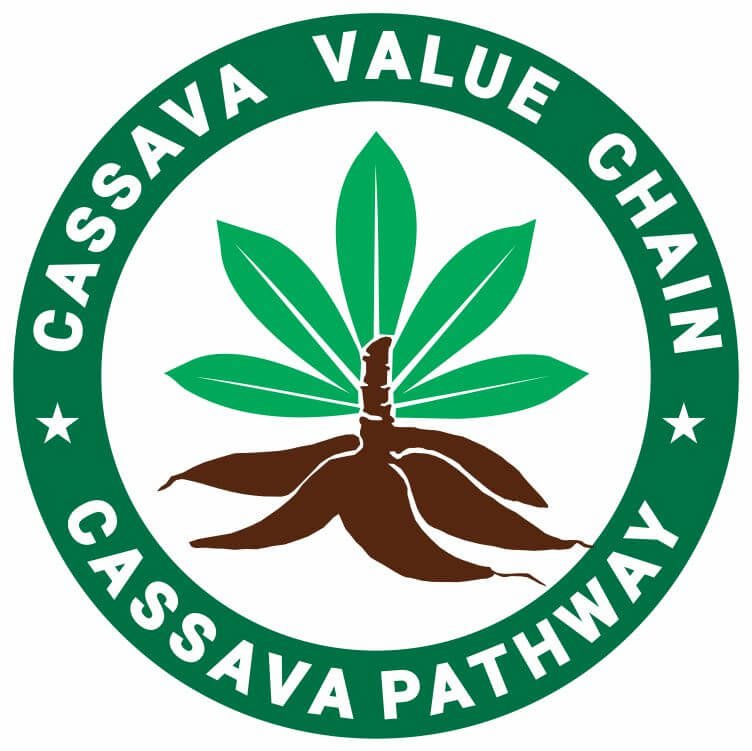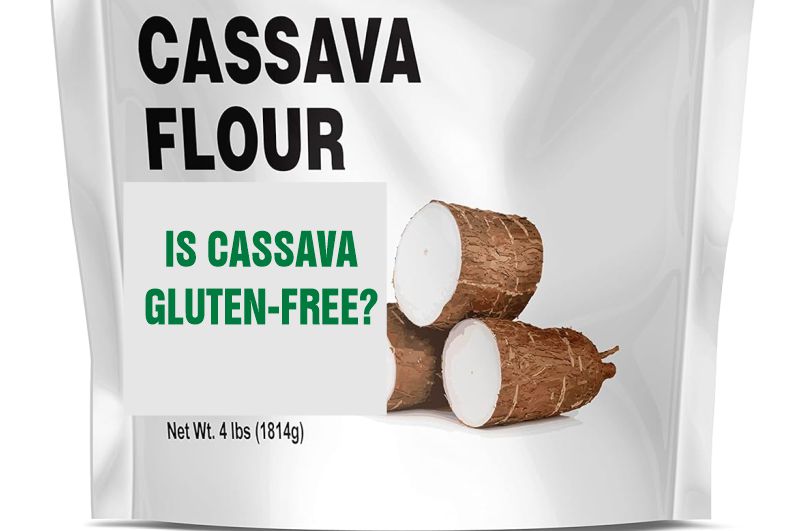Do cassava and its products have gluten? Learn how this ancient root fits into gluten-free diets and why it’s a trusted choice for wheat-free cooking and baking.
As a root vegetable used in various cuisines worldwide, cassava root raises the question: Do cassava and its products contain gluten? Let’s find out.
For people with celiac disease or gluten sensitivities, understanding the gluten content of foods is a must.
Cassava, fortunately, is naturally gluten-free, offering a safe and reliable option for those avoiding wheat and related grains.
But it doesn’t stop there, cassava is also used to make a range of gluten-free products, including flour, chips, and tapioca.
Whether you’re new to gluten-free eating or looking to expand your pantry, cassava is a practical, allergen-friendly ingredient to consider.
In this article, we’ll look at cassava’s gluten-free nature and why it’s become a favorite among those who live without gluten but still love to cook.
Related: The Role of Cassava in the American Gluten-free Lifestyle
An Overview of Gluten in Foods and Alternatives
Before we proceed, it is important to understand what gluten is for those who are hearing about it for the first time.
Gluten is a protein composite found in wheat and related grains such as barley and rye.
It is responsible for the elastic texture in dough, allowing bread and other baked goods to maintain their shape.
For people suffering from gluten intolerance or celiac disease, the consumption of gluten can trigger a range of adverse health effects.
This highlights the importance of recognizing gluten-free alternatives, which can play a crucial role in maintaining health and well-being for those affected.
Understanding gluten-free options is essential, particularly as the demand for such dietary choices continues to rise.
Many individuals who are gluten-sensitive or who have been diagnosed with celiac disease seek foods that are safe for their consumption, prompting them to explore a variety of alternatives.
In this context, cassava is a prominent gluten-free option, largely due to its natural properties.
By examining the gluten-free characteristics of cassava, you can appreciate its potential to serve not only as a staple food but also as a viable alternative for those requiring gluten-free diets.
Related: Numerous Cassava Root Benefits
The History of Cassava as a Gluten-Free Alternative
Cassava wasn’t created for the gluten-free trend; it’s been feeding people around the world for centuries.
What makes it special today is how naturally it fits into modern gluten-free diets without needing any changes.
Long before gluten-free was a label, people used cassava to make bread, porridge, and snacks that just happened to be wheat-free.
In the U.S., cassava started gaining attention as more people searched for grain-free, allergen-friendly options.
Food innovators realized that cassava flour wasn’t just gluten-free, it also worked well in real recipes.
Its history as a reliable, nourishing crop made it an easy fit for health-conscious consumers.
What once fed entire villages is now fueling a new way of eating, without gluten and compromise.
Understanding Cassava’s Gluten-Free Advantage
Cassava stands out in the world of gluten-free ingredients because it naturally performs well, tastes neutral, and delivers the structure you’ve been missing in your wheat-free recipes.
Naturally Gluten-Free: A Safe Choice for Sensitive Diets
If you need to avoid gluten, cassava is one ingredient you don’t have to second-guess.
It’s naturally gluten-free, right from the ground. No processing tricks. No chemical removals.
Just a clean, plant-based option that fits your lifestyle. Whether you have celiac disease or gluten intolerance, cassava flour gives you peace of mind.
You can use it freely in your cooking without worrying about hidden gluten or cross-contamination from grains.
Mimicking Wheat: Texture That Doesn’t Feel Gluten-Free
Most gluten-free flours struggle to copy the soft, chewy feel of wheat. That’s why cassava flour feels like a breakthrough.
It gives your recipes that bounce and structure you’re missing. Pancakes don’t fall apart.
Cookies don’t crumble. It’s not gummy or grainy like some other flours.
Instead, it behaves like wheat flour in the kitchen, making your gluten-free lifestyle feel less like a sacrifice and more like a simple shift.
Binding and Thickening: More Than Just a Flour Substitute
Cassava flour is more than something you bake with; it’s a workhorse in your kitchen.
Thanks to its natural starch content, it thickens sauces, binds ingredients, and helps recipes hold their shape.
You don’t need extra gums or additives to make things stick.
Whether you’re making stews, fritters, or flatbreads, cassava flour keeps it all together without falling apart or turning to mush.
Neutral Flavor Profile: Blends Right Into Any Dish
You don’t want your flour competing with your flavors, and cassava gets that. Its neutral, mild taste makes it a flexible base for whatever you’re craving.
Sweet or savory, breakfast or dinner, it blends in without overpowering.
That’s what makes cassava so easy to use. It lets the rest of your ingredients shine, whether you’re baking muffins or rolling out empanadas.
So, is Cassava and its Products Gluten-free?
The absence of gluten in cassava makes it an ideal choice for those seeking gluten-free alternatives.
Cassava flour, made from the root of the cassava plant, is a versatile ingredient used in a wide range of recipes, including breads, pastries, and sauces.
Unlike gluten-containing grains, cassava offers a gluten-free option that has a distinct texture and flavor.
It is also lower in calories, providing a unique and nutritious alternative.
In addition to being gluten-free, cassava is rich in important nutrients like fiber, vitamins, including vitamin C and B vitamins, and minerals such as potassium and magnesium, making it a beneficial dietary choice for gluten-sensitive individuals.
Related: All the Health Benefits of Manioc
Cassava Flour: A Gluten-Free Alternative
Cassava flour, made from the whole root of the cassava plant, is a naturally gluten-free ingredient that has become increasingly popular in gluten-free diets.
It is milled from the entire cassava root, including the peel, which helps preserve the nutritional value and fiber content.
Unlike other gluten-free flours, such as rice flour or almond flour, cassava flour has a neutral taste and a texture that closely resembles wheat flour, making it an excellent substitute in a variety of recipes, including baked goods, bread, and pancakes.
One of the standout features of cassava flour is its ability to mimic the consistency and mouthfeel of wheat flour, offering a similar structure to baked goods without the use of gluten.
It is rich in carbohydrates, providing a good source of energy, and it is also high in fiber, which aids in digestion and supports gut health.
While cassava flour is not particularly high in protein or fat, its versatility makes it a go-to flour for those avoiding gluten.
Cassava flour is especially beneficial for people with celiac disease or gluten intolerance as it provides a safe, nutritious alternative to wheat flour.
However, it’s important to note that cassava flour can sometimes be processed in facilities that handle gluten-containing grains, so it’s best to choose certified gluten-free cassava flour to avoid contamination risks.
Related: Cassava in Paleo Diet – Clearing the Confusion
Cassava Starch: Gluten-Free and Functional
Another common cassava product is tapioca, also called tapioca starch, derived from the cassava root, which is another gluten-free option that is widely used in various culinary applications.
Unlike cassava flour, which is made from the entire root, cassava starch is extracted from the starchy part of the cassava tuber.
The result is a fine, white powder that is almost pure starch and lacks the fiber content found in cassava flour.
It is particularly popular in recipes for puddings and as a thickening agent in soups, sauces and gravies, making it a common ingredient in many gluten-free recipes.
Additionally, tapioca pearls can be found in bubble tea, adding a chewy texture that is appealing to many consumers.
It is also used as a binder in gluten-free baking, helping to improve the texture of products like cakes, cookies, and pastries.
Because of its neutral flavor, cassava starch does not alter the taste of dishes, allowing it to blend seamlessly into a wide variety of recipes.
Like cassava flour, tapioca is completely gluten-free and is often utilized in gluten-free cooking.
Other Cassava-Based Gluten-Free Products
Other cassava-based products include cassava chips and cassava noodles, both of which are touted for their gluten-free status.
Cassava chips serve as a crunchy snack and can often be found in health food aisles, whereas cassava noodles offer a gluten-free alternative to traditional pasta.
These products not only cater to individuals with gluten intolerance but also appeal to health-conscious consumers seeking diverse options in their diets.
In light of their gluten-free nature, cassava products are frequently incorporated into various dietary regimens.
Individuals can explore these alternatives in their meals, for a sense of culinary creativity while adhering to gluten-free guidelines.
Cross-Contamination Concerns
Cross-contamination is a concern for people who want gluten-free options, particularly for those with celiac disease or severe gluten intolerance.
It refers to the unintentional transfer of gluten-containing substances to gluten-free foods, which can occur at various points, including harvesting, processing, and packaging.
In the case of cassava, these risks can arise when cassava is processed alongside gluten-rich grains such as wheat, barley, or rye.
During the milling process, if equipment used for grinding cassava is also used for grains that contain gluten, remnants from the latter can contaminate the cassava flour.
Additionally, in facilities where multiple gluten-containing products are processed, airborne flour particles can settle on cassava products, further increasing contamination risks.
Therefore, discerning consumers must exercise caution when purchasing processed cassava products.
To mitigate these risks, it is advised to read labels carefully.
Many manufacturers are increasingly aware of the need for gluten-free products and are taking measures to safeguard against cross-contamination.
Look for products that carry a gluten-free certification label, which indicates that they have been tested and meet stringent regulatory standards for gluten contamination.
Furthermore, opt for brands that specifically state their cassava products are produced in dedicated gluten-free facilities.
This information plays an essential role in ensuring that what you consume is genuinely gluten-free and safe for those with gluten sensitivities.
Understanding cross-contamination and being proactive in choosing safe cassava products can significantly contribute to your health and well-being.
By taking these precautions, you can enjoy the benefits of cassava without the fear of gluten exposure.
Conclusion: Cassava as a Safe Gluten-Free Option
So, from the above discussion, is cassava and its products gluten-free?
In short, cassava is a naturally gluten-free food, making it a great choice for anyone with celiac disease or gluten sensitivity.
This versatile root can be used to create a variety of gluten-free products, like flour, bread, and snacks, all while offering a texture and taste similar to traditional gluten-containing foods.
Beyond being gluten-free, cassava provides essential nutrients, including fiber, vitamins, and minerals, and is a low-fat source of energy, supporting overall health.
However, it’s important to be mindful of cross-contamination risks during processing.
Opting for certified gluten-free cassava products ensures safety.
By including cassava in a gluten-free diet, individuals can enjoy its health benefits and explore new culinary possibilities.
References:
- Cassava Flour: A Gluten-free Alternative
- Understanding Cassava Flour as a Gluten-free alternative

Chimeremeze Emeh is a writer and researcher passionate about Africa’s most transformative root crop—cassava. Through his work at cassavavaluechain.com, he explores the entire cassava industry, from cultivation and processing to its diverse applications in food, health, and industrial use.
He also writes for palmoilpalm.com, where he shares his extensive experience and deep-rooted knowledge of palm oil, covering red palm oil, palm kernel oil, and refined products. His work there reflects his lifelong connection to agriculture and his commitment to promoting sustainable value chains in Africa.
Driven by curiosity and purpose, Chimeremeze aims to shed light on how cassava continues to empower communities, strengthen food systems, and link traditional farming wisdom with modern innovation.

